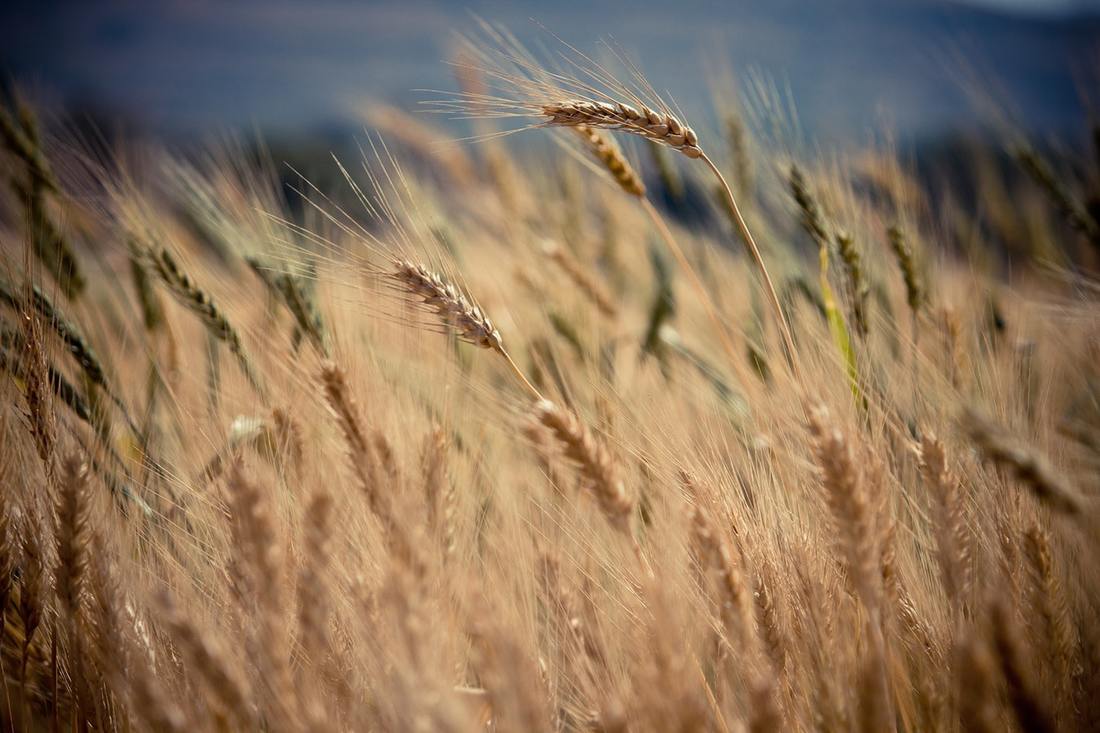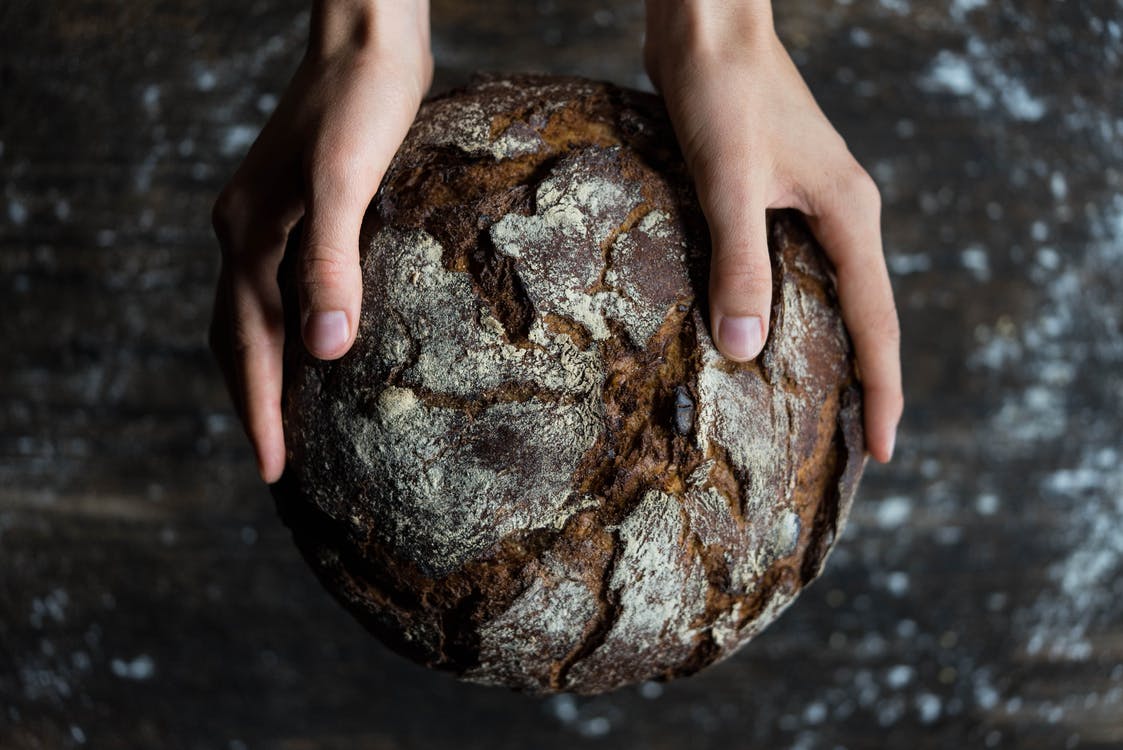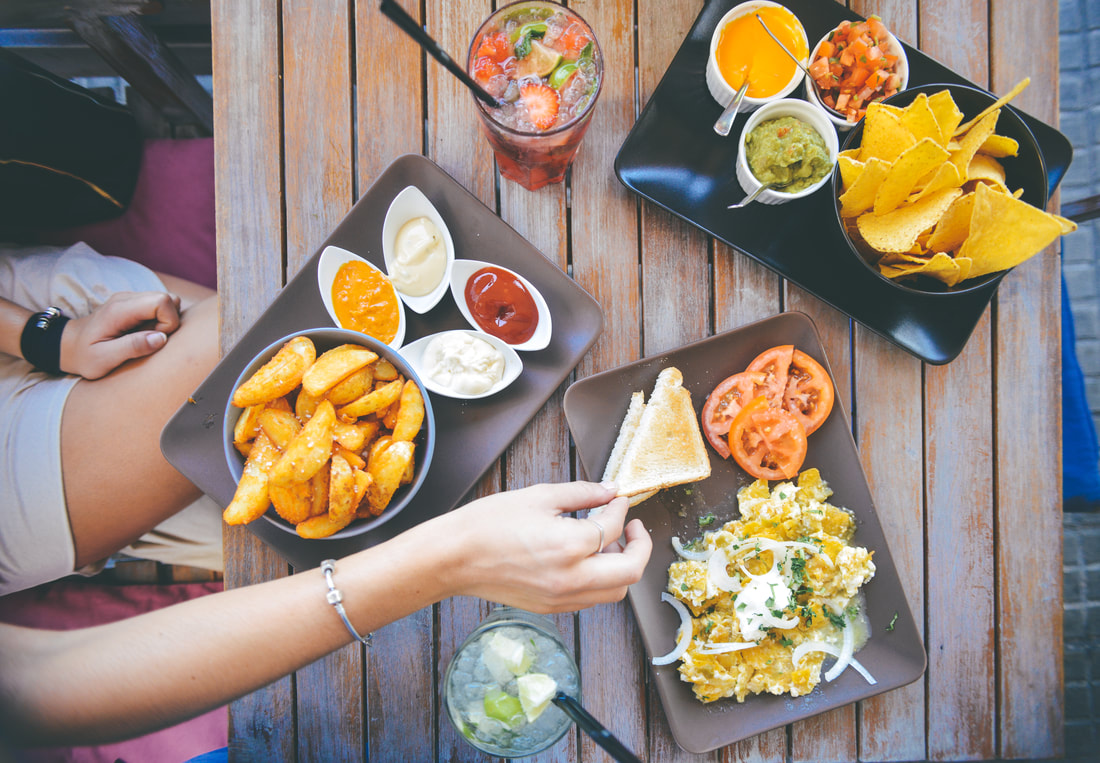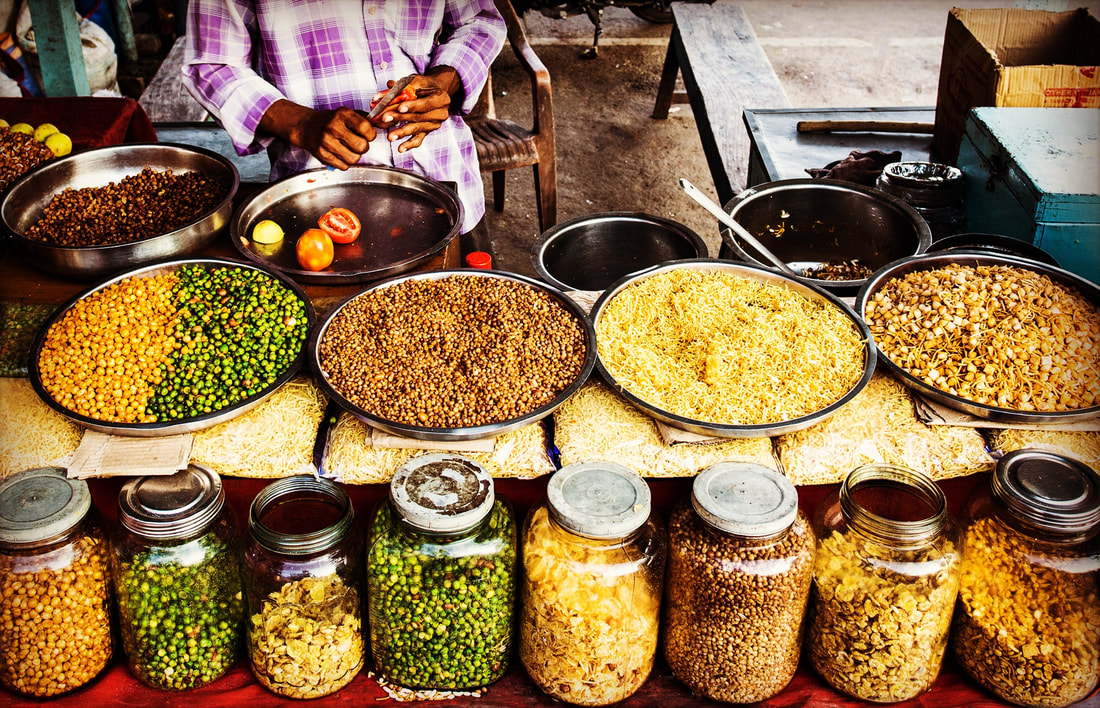|
Coeliac disease, an allergy to gluten that causes damage to the intestine, affects one per cent of Australians. But more than ten times this number, or around 11 per cent of the population, follows a gluten-free diet by choice, and up to 30 per cent of people in the United States try to reduce their gluten intake. Gluten-free foods are frequently perceived as a healthier alternative, because of an alignment with a "wellness lifestyle". But is there scientific evidence to support this? Are gluten-free diets healthier? Recent large studies have not found health benefits for a gluten-free diet, and in fact the opposite may be true. Researchers followed a group of more than 100,000 people in the US for nearly 30 years and found a gluten-free diet was not associated with a healthier heart. It's not clear whether this was due to something in the gluten-free foods, or the avoidance of wholegrains, which are considered protective against heart disease. One study suggests gluten may be beneficial because it lowers levels of triglycerides in the blood. These are "bad" fats that increase the risk of heart disease. Another large study has found an inverse association between gluten intake and type 2 diabetes. People with a lower gluten intake had higher rates of type 2 diabetes. The researchers found this group also had lower fibre intake, and wondered whether low fibre was the culprit. But even after accounting for the lower fibre intake, an association remained, suggesting avoiding gluten is not protective against developing type 2 diabetes. Gluten free and diabetes Wholegrain products are made using the three parts of the grain — the bran (outside, which is rich in fibre), the germ (the seed) and the endosperm (the starchy, carbohydrate-rich centre). Together they form a bundle of fibre, carbohydrate, vitamins and minerals. Packaged gluten-free products such as bread frequently use only the carbohydrate component using refined flours from rice, corn or potato. These high carbohydrate foods may cause a sharp rise in blood sugar levels and may predispose to diabetes in the long term. Packaged gluten-free products often have added sugars to enhance flavour, and add emulsifiers and thickeners to improve the texture and make it similar to bread. Food fads nothing new Gluten-free markets have risen exponentially in the last decade due to consumer demand, even extending to the production of gluten-free food for dogs. Whether the market will expand or diminish with time is unknown, but food fashions are not new. Consider the popularity of low-fat diets in the 1980s, when butter was a villain. Now butter is now back in vogue, with sales increasing. Similarly, red wine used to be considered protective for cardiac health, but guidelines for safe alcohol consumption now recommend reduced intake. Of course, naturally gluten-free products such as plant-based foods, ancient grains and dairy are all part of a healthy and balanced diet, but there does not seem to be a health benefit for the processed and packaged gluten-free replacements over wheat-based versions. Why are gluten-free diets so popular?
Non-coeliac gluten sensitivity is different from coeliac disease. In coeliac disease, gluten intake causes damage to the intestine's lining, which reverses with a gluten-free diet. In non-coeliac gluten sensitivity (also called "gluten intolerance"), symptoms like bloating and wind are common, but no intestinal damage or long-term health effects occur. To better understand this condition, researchers set out to determine whether it was gluten intake or the perception of gluten intake that may be contributing. They designed a study in which self-identified gluten-sensitive people were fed gluten-free, low gluten and high gluten foods, but didn't know which they were eating. All diets were also low in wind-causing sugars, called FODMAPs, which can cause similar symptoms. They found most of the group improved regardless of whether they were on a high gluten, low gluten or gluten-free diet. They concluded there was no evidence for gluten alone being responsible, but the reduction in FODMAPs could explain the symptom improvement. Another reason people may report improvement when commencing a gluten-free diet is the exclusion of many other foods that are known not to be healthy, such as cakes, biscuits, crackers and beer. These dietary changes may also contribute to overall wellbeing. So where to from here? For people without coeliac disease, there's no evidence to support claims a strict gluten-free diet is beneficial for health. It's even possible the opposite is true, and the avoidance of dietary whole grains resulting in a low fibre intake may be detrimental. Given gluten-free foods cost around 17 per cent more, perhaps it's time to reconsider a strict gluten-free diet chosen for health benefits alone, and instead include a diversity of gluten and gluten-free foods, with dietary variety as the key. Suzanne Mahady is a gastroenterologist and clinical epidemiologist. She is a senior lecturer at Monash University. This article was originally published on The Conversation.
2 Comments
Step away from the cured meats and put down that cheese, especially if you're a bloke.
Australian men are eating twice as much salt as the maximum recommended by the World Health Organisation, a study has found. Men on average are consuming about 10 grams of salt a day, and Australian women aren't far behind, taking in more than 7 grams a day, putting them at risk of heart disease and stroke, according to the paper published today in the Medical Journal of Australia. "Salt's a problem because what salt does is, throughout your life, you eat more than you need and your blood pressure goes up over your life," said lead author Professor Bruce Neal from UNSW Sydney and the George Institute for Global Health. "High blood pressure is the single biggest cause of premature death and disability in the world and most of that is from heart attack, strokes, kidney disease and heart failure." But don't chuck out your Himalayan sea salt shaker quite yet, that's not where most of your salt is coming from. The majority of this excess salt we're eating is hidden in processed foods, Professor Neal said. "You shouldn't be putting salt on food because it's not good for you, but that's not the main issue here," he said. "The issue is the 85 per cent of the average Australian's daily salt intake that comes from meats, cheeses, cereals, soups." Hidden salt the culprit And it's not just food we would think of as unhealthy. A single slice of bread can contain as much salt as a packet of chips, a study last year revealed. This means we should be taking a look at how much sodium is contained in everything we eat that comes from a packet. But Professor Neal said government and industry stepping up to change the ingredients going into those packaged foods would make a much bigger difference. "Most of the actions trying to contain how much salt people eat have been about trying to educate people and tell them about the problem. And that's important, but the food environment means that's not desperately helpful. It has almost no impact at all." Professor Neal gave the example of action taken in the UK around the turn of the millennium, when government put pressure on the industry to reduce salt content in food across the board. The result? About 11,000 fewer stroke and heart attacks each year at the 10-year mark. An investment of 15 million pounds ($26 million) a year is estimated to have saved 1.5 billion pounds ($2.6 billion) in healthcare costs. "It's just an absolute no-brainer," Professor Neal said. Modelling suggests that if sodium intake in Australia and New Zealand were reduced by 10 per cent over 10 years, it would save about 11,000 years of life that would be otherwise lost due to ill health, disability or early death across the population because of cardiovascular disease, the authors noted. Globally, the WHO estimates 2.5 million deaths could be prevented each year if salt consumption were reduced to the recommended level. Knowing the problem the first step to fixing it Australia, along with other WHO member states, has agreed to reduce the average population salt intake by 30 per cent by 2025. But Professor Neal said it has not been clear how we would make this change, given we've never had an accurate idea until now as to how much we were actually eating. Today's study aims to rectify that, bringing together 31 previous studies, including nearly 17,000 people over 26 years, and conducting a meta-analysis of their data. Up until now, the only other nationally representative survey of Australian adults' salt consumption found people were eating about 6 grams a day. That study relied on self-reporting — that is, study participants recalling what they had eaten and then reporting on it. "You find people are pretty optimistic about how much they eat and what they eat, and you get systematic underestimations of up to 50 per cent or a third," Professor Neal said. This study used data from more reliable methods, such as 24-hour urine tests, to get a more accurate measurement. Professor Neal said ongoing monitoring of Australians' salt intake was needed to make sure the country met its reduction targets. This article originally appeared on ABC Health. Plus, exactly what you can do to minimize the gas Ever wonder why you tend to get gassy at the worst possible moments? Your farts are a combination of two things: the air you swallow (say, by eating too quickly) and the food you eat, says David Poppers, M.D., Ph.D., gastroenterologist and clinical associate professor of medicine at NYU Langone Health. Farting is completely normal and healthy. But it’s also extremely inconvenient, and some foods may affect you more than others. That’s because everyone harbors different bacteria in their gut, says Dr. Poppers, which are typically responsible for the gas you produce. The following foods, however, seem to be common offenders. Here’s why they make you gassy — and what you can do about it. BROCCOLI AND CAULIFLOWER Cruciferous vegetables — like broccoli, cauliflower, cabbage, and Brussels sprouts — are particularly high in fiber, a type of carb your body can’t digest. “Unlike most other components of food, fiber reaches the large intestine intact,” explains Myers. “The majority of the bacteria in the GI tract live in the large intestine. Bacteria have the capacity to utilize fiber for energy, but the byproduct of their metabolism is gas.” OATS AND WHOLE WHEAT BREAD Whole grains make you gassy for the same reason the vegetables listed above do: they’re equally high in fiber. You don’t want to skimp on fiber, though, since it’s great for your heart, digestion, and weight. Instead, increase your intake slowly by eating an additional serving of a high-fiber food per day until your stomach gets more comfortable with it. Drinking enough water during this process will help ease the gas, so for every 5 grams of fiber you add, increase your fluids by 8 ounces, says Myers. MILK, CHEESE, AND YOGURT Dairy contains a type of sugar called lactose, but many people have trouble digesting it because they have insufficient amounts of an enzyme called lactase, explains Myers, which can lead to bloating, gas, or even constipation. In fact, about 65 percent of people have trouble digesting dairy as they grow older, according to the U.S. National Library of Medicine. That doesn’t necessarily mean you’re completely lactose intolerantor allergic, though. Some people are merely sensitive to it, so you can try drinking reduced-lactose milk or taking lactase supplements (like this one) to see if that eases your stomach problems, says Myers. If you experience severe abdominal pain, though, you should check in with your doc, ideally a gastroenterologist, so you can rule out the possibility of other serious health issues, says Dr. Poppers. APPLES, BANANAS, AND PEACHES Your body loves fruit — most of the time. If your stomach feels a bit rumbly after your daily apple, it could come down to the fiber, says Myers. Fruit is also high in natural sugar, like fructose. “Although it’s less common than lactose intolerance, some people experience gas and bloating from fruit because their GI system doesn’t break down all the sugars in fruit properly,” he explains. “So these carbohydrates reach the large intestine and serve as food for bacteria, which produce gas as a byproduct.” The biggest offenders include apples, peaches, raisins, bananas, apricots, prune juice, and pears, according to the International Foundation for Functional Gastrointestinal Disorders. BEANS Beans get their bad reputation for a reason. Most legumes — including lentils, nuts, and peas — are high in fiber, along with sugars your body can’t digest properly, like raffinose and stachyose, according to a study published in the Nutritional Journal. Bacteria in your intestines break down these sugars, resulting in all sorts of gas, like hydrogen, methane, and even sulfur (responsible for that rotten egg smell). Rinsing and draining canned beans can help reduce some of these gas-causing properties, says Myers. SOFT DRINK Carbonated drinks can make you gassy because they cause you to swallow extra air, which gets trapped in your GI tract, says Myers. That air eventually has to be released, and the only way out is in the form of gas. If you must have a fizzy beverage, go with a sugar-free seltzer. Many sodas contain an artificial sweetener known as sorbitol, which is not fully absorbed by your body and fermented by bacteria instead, causing even more farts. WHAT SHOULD YOU DO IF GAS IS A CONSTANT ISSUE? If gas is becoming a consistent problem, taking a tablet with your meals may help, since it contains an enzyme that makes fart-inducing foods easier to digest, says Dr. Poppers. You may also want to try keeping a food log for a few weeks, he suggests. Write down what you eat, how much of it, and how it makes you feel. This can help you pinpoint the worst offenders. Once you have that down, a doc or an R.D. can help you figure out the best way to approach your diet if you want to minimize gas. Take note of any other bothersome symptoms, like constipation, stomach pain, or heartburn, or nausea, says Dr. Poppers. This way, your doctor can rule out other serious GI issues, like irritable bowel syndrome. This article by Alisa Hrustic originally appeared on Men's Health. |




